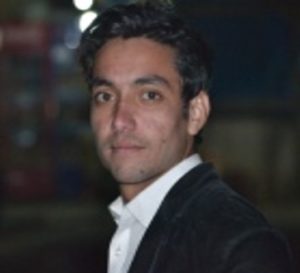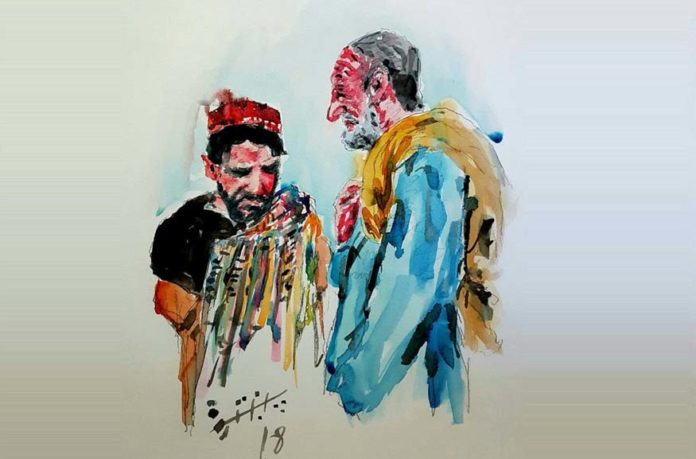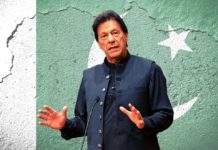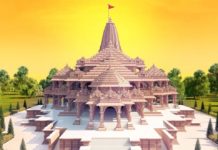Disclaimer: The Eqbal Ahmad Centre for Public Education (EACPE) encourages critical and independent thinking and believes in a free expression of one’s opinion. However, the views expressed in contributed articles are solely those of their respective authors and do not necessarily reflect the position or policy of the EACPE.
Bacha Khan, the legendary Pashtun social reformer and founder of Khudai Khidmatgar (Servants of God) Tehreek, the Pashtun non-violent movement against the British Empire, was a champion of women’s rights. He believed a nation cannot progress unless gender equality is ensured.
Before switching to the main topic, let me address the historical importance of the Pakhtun areas. These areas – mainly Charsadda, Kabul, Swat, Mardan and present day FATA – were the main centers of the great Gandhara Civilization. Pashkalawati (present day Charsadda) was the capital of Gandhara Civilization and was the centre of business activities. At that time, the people of these areas were engaged in art, poetry and architecture, and were highly civilized. After Gandhara Civilization, this area became the hub of wars and everyone used the Khyber Pass to grab the resources of central India. As a result, society, culture and people of this area became the target of foreign militants, and hence, the culture was militarized by foreign invaders. Later, the British raj conquered this area and made it black hole in order to save the border from Russian attack. The people of FATA were weaponized, and they were kept away from education, elections and media in order to safeguard the Western border. This whole process gave rise to conservative patriarchal society and women were oppressed to the extreme level. The so called honour was attached with the women and women had to stay all of their lives within four-walls of their homes. Women couldn’t participate in any cultural or social activity. The Jirga system was introduced through FCR (Frontier Crimes Regulation) consisted of elder men and women were kept away from Jirga committee members and decision process. The situation was almost the same in the settled areas of Pakhtuns.
At that time, Bacha Khan – also known as “Frontier Gandhi” – started his famous Social Movement known as Khudai Khidmatgar (God servants). This movement meant to equip the Pakhtuns with modern education, as well as to remove the bad customs and traditions in order to bring a social change in the lives of Pakhtuns. Later it changed to a national movement against the British atrocities and gave political awareness to the Pakhtuns. The striking aspect of this movement was the participation of women They used to sing songs for the success of their Pakhtun brothers. Women for the first time participated in political movement and the result was that this Movement changed the society in positive direction. Now, women were not confined to four walls of their homes, but they could also participate in political gatherings and make their decision independently.
Manzoor Pashteen has ignited the same spark that once Bacha Khan ignited by his non-violent movement.
This area was used by imperial powers due to its strategic importance for their own benefits. In order to defeat the Russian troops, the USA with the help of Pakistan Military and government used the people of FATA and rest of Pakhtuns areas in the name of Jihad. Funds were given to religious seminaries to produce Jihadists. The education discourse was changed and people of this region were made to fight the war against Russian troops in Afghanistan. They fought the war and became victorious, but the aftermath was very alarming. The society was radicalized, weapon’s culture was introduced, drug supply was made frequent and all this affected the Pakhtuns directly and forced them to militancy. The educational institutions were burnt, women were restricted to four walls again and society was pushed back to the era of pre Khudai Khidmatgar Movement.
After the Jihad, the establishment kept using these Jihadis as their strategic assets for their political, economic and warfare tactics. Post 9/11, a new wave of militancy emerged. Later, military operations were launched there, but the common civilians were affected more as compared to militants. The homes, schools and mosques were destroyed during the operation. The people who migrated to settled cities like Karachi, Peshawar, and Lahore etc. were vulnerable, and often targeted by security forces, like Naqib Mehsud fake encounter.
In these circumstances, a group of around two dozen young people started their journey toward Islamabad in order to seek justice for Naqib Mehsud. In Islamabad, their sit-in was joined by thousands of war affected pakhtuns, and this was how, it shaped a movement known as Pashtun Tahafuz Movement (PTM) in the leadership of 24-year-old Manzoor Pashteen. Members of this movement are affected by militancy and military operations in their areas. They raised their voice and put a few demands, which in Manzoor’s own words are:
We demand that all “missing people” be released. If they have committed any crime, they should be tried in a court of law. Extrajudicial killings of Pasthuns must stop. A judicial commission should be formed to investigate these killings because we think they are pre-planned. Naqeeb Ullah Mehsud, a Pashtun youth who was killed by [senior police official in the southern city of Karachi] Rao Anwar, was falsely labeled as a Taliban militant.
We also demand that the authorities clear mines planted in the Federally Administered Tribal Areas (FATA) during security operations, paramilitary forces stop harassing Pashtun families on the pretext of search operations and that people should not be humiliated at security check posts in the northwestern areas.
The message is clear: Pashtuns refuse to allow the state to misuse their areas as strategic playground.
After Khudai Khidmatgar Movement, it is the first movement in which women have been participating in large numbers. Not only this, they have become the members of its Central Committee as well. Before mass gatherings of PTM, women use to visit homes, shops and hujras to bring awareness and invite people to attend their gathering. They have been arrested, tortured, and lost their relatives but still they have stood firmly on their demands. These men and women have worked together in all PTM mass gatherings without any complain of harassment. Here, again I would like to quote the great Bacha Khan that a nation cannot progress unless gender equality is ensured.
“I want to see them share each other’s sorrow and happiness. I want to see them work together as equal partners. I want to see them play their national role and take their rightful place among the nations of the world, for the service of God and humanity.” (Eknath Easwaran, Nonviolent Soldier of Islam, p. 77).
Manzoor Pashteen has ignited the same spark that once Bacha Khan ignited by his non-violent movement. The message is clear: Pashtuns refuse to allow the state to misuse their areas as strategic playground.
 The writer is a freelance journalist and the student of Pakistan Studies at Government College Mansehra. He can be reached at abidalimn121@gmail.com
The writer is a freelance journalist and the student of Pakistan Studies at Government College Mansehra. He can be reached at abidalimn121@gmail.com



 The writer is a freelance journalist and the student of Pakistan Studies at Government College Mansehra. He can be reached at abidalimn121@gmail.com
The writer is a freelance journalist and the student of Pakistan Studies at Government College Mansehra. He can be reached at abidalimn121@gmail.com




Nice article. The message of gender equality and peace is worth praising.